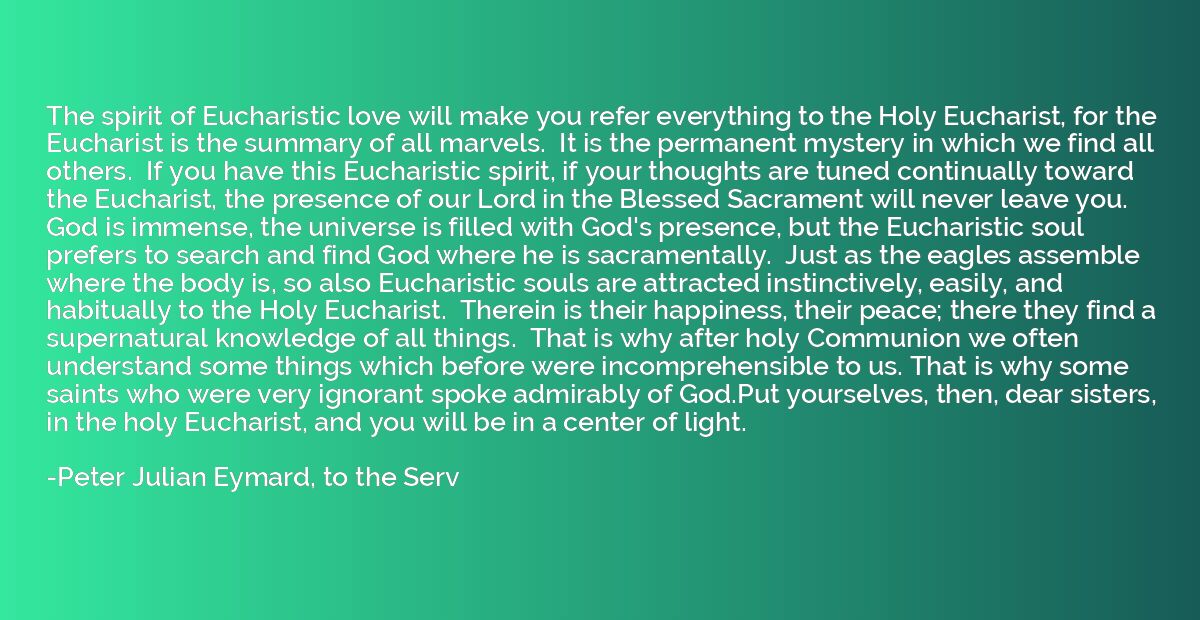Quote by Peter Julian Eymard, to the Serv
The spirit of Eucharistic love will make you refer everything to the Holy Eucharist, for the Eucharist is the summary of all marvels. It is the permanent mystery in which we find all others. If you have this Eucharistic spirit, if your thoughts are tuned continually toward the Eucharist, the presence of our Lord in the Blessed Sacrament will never leave you. God is immense, the universe is filled with God's presence, but the Eucharistic soul prefers to search and find God where he is sacramentally. Just as the eagles assemble where the body is, so also Eucharistic souls are attracted instinctively, easily, and habitually to the Holy Eucharist. Therein is their happiness, their peace; there they find a supernatural knowledge of all things. That is why after holy Communion we often understand some things which before were incomprehensible to us. That is why some saints who were very ignorant spoke admirably of God.Put yourselves, then, dear sisters, in the holy Eucharist, and you will be in a center of light.

Summary
This quote emphasizes the transformative power of having a deep love for the Holy Eucharist. It states that when one's thoughts and focus are continually directed towards the presence of Jesus in the Blessed Sacrament, they will never be separated from Him. The Eucharist is seen as the summary of all marvels, the key to understanding all other mysteries. Eucharistic souls are described as being instinctively drawn to the Holy Eucharist, finding happiness, peace, and a supernatural knowledge in its presence. By immersing oneself in the Eucharist, one can experience enlightenment and be centered in divine light.




![Science [is] that wonderfully convenient personification of](https://quotation.io/quotes/science-wonderfully-convenient-personification.jpg)









